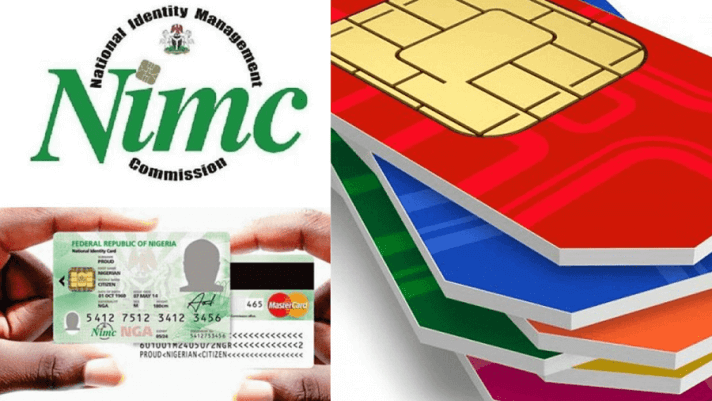News
Government Lapses The Factor Affecting NIN-SIM Linkage

|
Getting your Trinity Audio player ready...
|
Government lapses the factor affecting NIN-SIM linkage
By culumbus Addey
Majority of the government agencies in Nigeria are bogged down in inefficiency. For years, the Nigerian Communications Commission has tried to register citizens for the National Identity Number. At one point, it mandated citizens to link their NIN to the Subscriber Identity Module. The linkage policy, too, has continued to be fraught with challenges. It is unacceptable for the government to put citizens through registration hardship because of its inefficiency.
After many aborted deadlines, the NIN-SIM linkage issue provoked outrage again last week as telcos blocked SIMs not linked with the owners’ NINs just before the July 31 deadline mandated by the NCC. This generated confusion among the affected Nigerians, who lamented that the blockage disrupted their everyday activities, businesses, and lives. Angry phone users besieged telco customer care centres in many states, trying to reactivate their blocked lines, leading to frustration and protests.
Introduced in December 2022, the NIN-SIM linkage policy was part of the government’s effort to enshrine a Know-Your-Customer regime, to ensure that no mobile phone user is anonymous in Nigeria. This is to curb identity theft, kidnapping, cybercrime, and other criminal activities.
Before the NIN-SIM policy, kidnappers who had been on the rampage in the country demanded ransoms using unregistered SIMs.
The Inspector-General of Police, Kayode Egbetokun, in April, said 214 kidnappings and 141 terror cases, among other cases, were recorded in just eight weeks. Many of these kidnappings and attacks were planned with unregistered SIMs.
The NCC claims Nigeria loses $500 million annually to all forms of cybercrime, including hacking, identity theft, cyber terrorism, harassment, and Internet fraud. Hence, the government ordered the NIN-SIM verification, among other KYC schemes.
According to the National Identity Management Commission, 105 million Nigerians had enrolled for NIN as of April 2024. The NCC says the country’s total active mobile subscriptions were 219 million in the first quarter of 2024.
In April 2022, following a directive from the NCC, over 72.77 million active mobile lines were barred. During that period, the country had 197.77 million active telecom lines.
The NCC issued a notice in December 2023 instructing telcos to bar SIMs not linked to their owners’ NINs by February 28, 2024. The deadline for the SIM-NIN linkage, earlier slated for April 15, was postponed to July 13, 2024.
While millions have successfully linked their SIMs to their NINs, many suddenly discovered that their SIMs have not been successfully registered.
MTN Nigeria had, in its first-quarter 2024 financial report, said 8.6 million lines had been barred.
Though Airtel, Glo, and 9mobile have yet to give a figure for barred lines, industry sources estimate that over 40 million lines may have been barred between February and April.
The NCC order that all blocked lines be restored following public outcry represents but a temporary respite.
The agencies involved and the telcos have failed to give Nigerians the confidence that things can be done properly. The NIN registration centres are crowded with registrants waiting for days and, sometimes, weeks to register for their NINs before even considering linking their SIMs.
Poor internet connectivity and epileptic power supplies are challenges bedevilling the registration centres.
Citizens are being punished for the government’s inefficiency and sometimes extorted before they can be registered. This must stop.
The NCC and NIMC need to collaborate more, while telcos should be ordered to ensure data NIN-SIM linkage becomes more seamless.
No subscriber deserves to be told about an unsuccessful NIN-SIM linkage after going through the rigour of capturing at the NIMC centres and linking the same with their SIMs. It is just untidy.
Every new SIM must be registered, and the government must ensure the multiple biometric databases in the country are protected from hackers, identity thieves, and breaches.








